

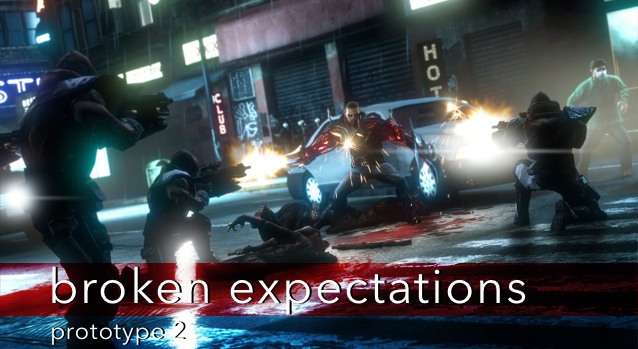
I am staring down at my laptop. Steam is open, my finger in raised about the left mouse button. I’m hesitating to launch Prototype 2.
It’s not out of some fear or loathing for the game that I resist pressing the Play button. I just don’t want my laptop to overheat. Again.
When I first launched the game, I was lying across a loveseat in my friend’s cabin. Far in the boonies, I had no phone service, let alone an internet connection. Had I left myself signed into the service before I left? Yes? Good. Am I able to start up the game for the first time without needing a connection?
Good.
It took me about 15 minutes, going through my tradition of adjusting every setting in the menu, lowering performance to the medium range I expect my laptop to be able to handle. Satisfied, I enter the game.
I begin the first cinematic. The very long opening cinematic. I wait for gameplay. Or for an autosave to occur. My fan chugs, my case becomes molten, my screen goes black.
Even Prototype 2 doesn’t seem to take itself seriously, with errant lines of NPC dialogue taking self-aware pot-shots at the game here and there.I can’t turn it back on until the machine cools down. Twenty minutes later, I’m able to reboot, and skip through most of the cinematic that I’ve already seen. Finally, I encounter gameplay. Okay, things are going well. The computer is running warm, but it’s running. I’m halfway through what is essentially a glorified tutorial. My screen goes black.
Okay.
Time passes, I restart. I’m exhausted, but I want to make progress. There’s nothing else to do out here. Everyone else is passed out drunk in the wee hours of the morning.
This time I’m a little more meticulous: I close every unnecessary process; I turn off all sound and turn on subtitles. I minimize every possible setting. This seems to work.
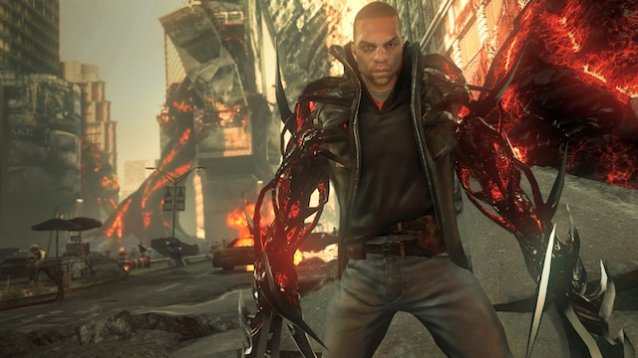
About an hour or two in, I realize I’m playing more on principle than out of actual desire. It’s working; that’s all that matters. I find myself skimming through the tale of James Heller, a man whose exploits are contextualized—and, arguably, rationalized—by profound personal tragedy.
A veteran returning from active duty in Iraq, he discovers that his wife and daughter have both been slaughtered. Count the tropes in that first cinematic. He reasonably blames the previous game’s protagonist, Alex Mercer, for his personal loss. He rejoins the military to fight locally, in the precarious NYZ, seeking revenge on Alex Mercer and his virus.
But after Heller’s infected by the furtive Mercer—and I’ll bet you can see this one coming—he quickly learns that there’s more than meets the eye, and redirects his focus to Blackwatch mercenaries and the almost cartoonishly evil scientists that have led NYZ to its current ruin. There, a simple canon-relevant context has been established.
But let’s be honest here: who really cares about the story in Prototype 2? Even Prototype 2 doesn’t seem to take itself seriously, with errant lines of NPC dialogue taking self-aware pot-shots at the game here and there.
The real fun comes from the gameplay itself, right? Right?
I let my laptop run hot, overheat, and shut down for a game that possesses hack-n-slash mechanics but superimposes stealth-oriented gameplay. A game which, after you’ve consumed your fourth or fifth scientist, tapped into your fourth or fifth control deck, and stealth-obliterated your fourth or fifth laboratory, does enough to demonstrate how fractured, yet redundant, it is.
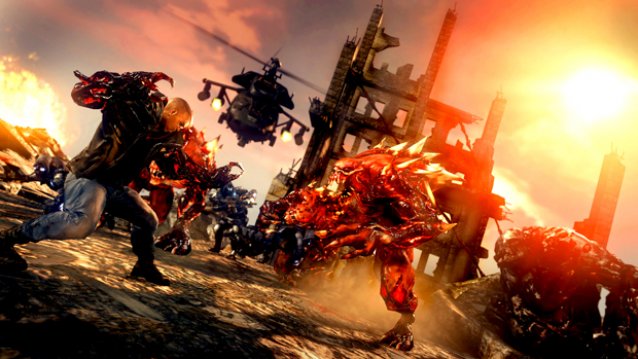
Here we have a story of a man who by all means has a right to be angry, but rationalizes psychopathic behaviour by using his personal tragedy as a badge. Here we have a story that tries to humanize and redeem our “hero” through the tacky use of a priest deuteragonist, despite the overwhelming dissonance the actual gameplay creates.
It may be a matter of thematic intention that, generally speaking, only enemy Blackwatch NPCs get any dialogue or characterization, and that everyone else in the environment is basically just fodder for Heller to consume. This may be a commentary on the fact that Heller’s universe is one in which people are reduced to chattel, fates resting in a balance of power between Blackwatch, Heller and Mercer. But it’s hard to feel any immediacy when you realize how easy it is to trigger or not trigger certain events in the environment. The precariousness of the scenario evaporates when upon realizing the game is more or less predictable. It becomes a controlled experience on the part of the player, making Heller seem more like a hellion demagogue rather than a flawed man under extreme circumstances.
It could just be that being able to play either bombastically or stealthily is a matter of actualizing the character (after all, Heller needs not consume many innocents if he operates gingerly). But again, I doubt it. Once one has played several permutations of the same mission, or boss fight, to achieve the same goals, one begins to feel a bit listless at the sheer lack of originality. It begins to seem, rather, that a set of interesting gameplay tools—established well-enough in the first game and elaborated upon in this sequel—have bee under-utilized here. I’m still rewarded for consuming innocents, like gangbusters. I can still earn points throwing cars at strike team helicopters. Nothing about any of these disparate parts appear to be unified to any central idea—anything that may inspire me to build momentum other than the ethereal thrill of gliding from building to building and wrecking as much shit as possible.
Hell, it got to the point where I was instigating strike team scenarios just to spice things up.
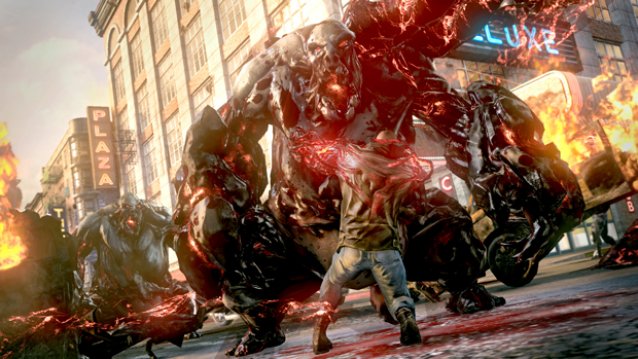
Prototype 2, after a few molten playthrough instances on my poor laptop, reveals itself as a sandbox full of toys that don’t really play well together. Sure, the landscapes and figures and missions are the definition of redundancy—but any attempt to make these things feel meaningful or purposeful fall apart through a mismanagement of what the game has to offer.
Experiencing a game through multiple instances of shut-downs and reboots is fracturing and frustrating enough. It is enough to have to admit to myself that, no, my laptop is not currently optimized to run this game—and could probably do with an aerosol cleaning, at the very least. It’s quite another to add to this the admission that the game I’m trying to play isn’t particularly optimized either, for compelling or coherent gameplay.
It is enough to bring a piece of technology into an environment in which it feels gauche to even be using it. It becomes just plain spooky when the game one is playing also can’t seem to harmonize its tools with its dynamics.
I’m hesitant to bring up the former Vancouver developer, Radical Entertainment, which faced mass layoffs after the game was released. I know that only a “skeleton team” was left behind at Activision to finish up whatever tasks lay behind, but to what extent that affected the efficacy of the PC port which my laptop struggled to run is not my place to say. But what Prototype 2 may represent, however, is a ton of talent and interesting ideas that didn’t get the opportunity to form into something more; a fracturing of disparate parts that didn’t quite come together.
At around 4 a.m, I shut off my smouldering laptop, gave up, and went to bed. The whole time I had managed to get the game to play, I was anxiously waiting for the black screen to return. Between the exhaustion, the lag—which I still don’t know whether to blame on the game or my laptop—and the overheating, I didn’t get much accomplished on that particular night. I would have to come back to it later, each time being more broken up than the last. I chugged and struggled and ran out my patience over Prototype 2, but eventually, I had to stop consuming villains, collecting objects, throwing metal objects at helicopters. It just wasn’t panning out as I had hoped.

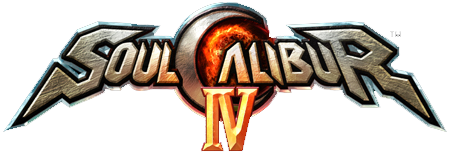
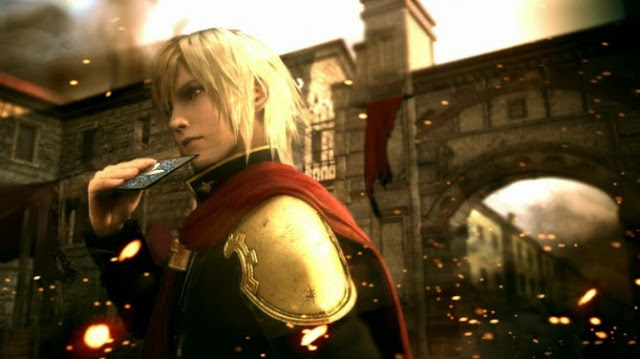

 Metroid Prime: Federation Force is a Disappointment, Antagonistic Media Labels Fans Entitled
Metroid Prime: Federation Force is a Disappointment, Antagonistic Media Labels Fans Entitled Hearthstone Guide: How To Build Beginner Decks For Each Class
Hearthstone Guide: How To Build Beginner Decks For Each Class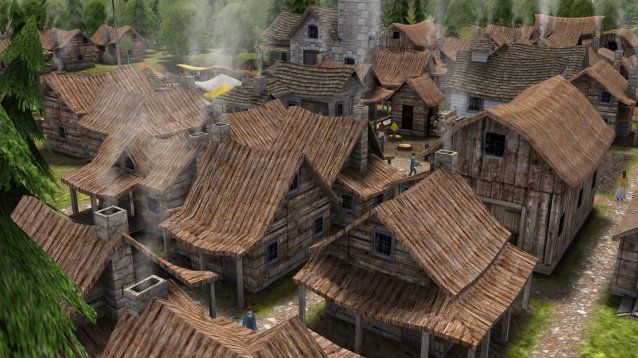 Individualism: An Interview with Banished Developer Luke Hodorowicz
Individualism: An Interview with Banished Developer Luke Hodorowicz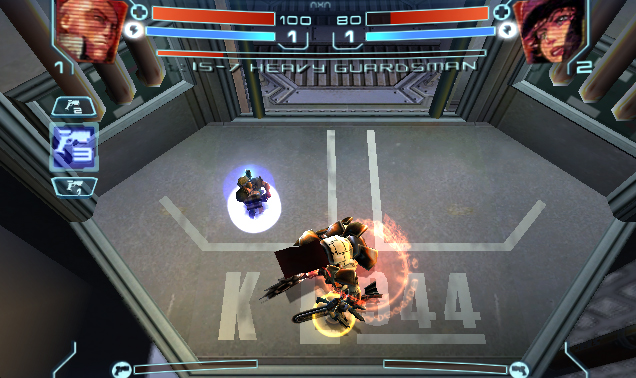 I Havent Played Many of Gamings Classics, and Im Fine with It
I Havent Played Many of Gamings Classics, and Im Fine with It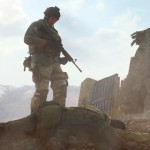 Medal Of Honor Cheats: How To Rank Up Fast
Medal Of Honor Cheats: How To Rank Up Fast